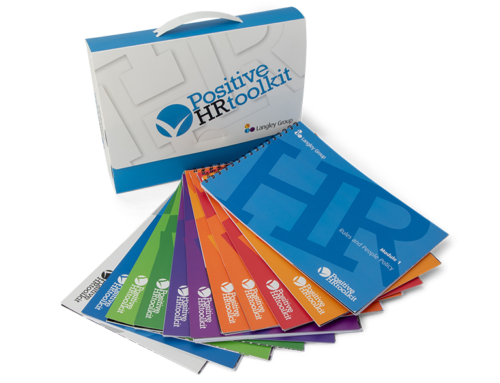What matters to you and what matters to the business should, ideally, be in alignment. Can playing cards help?
BY AMANDA WOODARD – HRM Magazine, May 2018
Our values are beliefs we hold as precious to us. They are a reference point for what we believe is good, right and important and act as a compass that determines our attitudes and behaviours.
Values help us in our daily life to make choices and influence how we react and interact with others and situations.
Organisations talk about the values they hold dear as well, and seek employees who broadly “share their values”.

The fact is that in the complexities of our working lives our values are often compromised by circumstances or events and we do things that don’t feel right. Think of employees in the banking sector who were driven to sell products they knew weren’t good for their customers.
When you act contrary to the values you hold, you feel uncomfortable at least; stressed, anxious and depressed at worst. So being able to live in harmony with our values, assists us in making good decisions, and makes us feel grounded and happy. At a team or even at an organisational level, shared values help keep all employees and stakeholders focused on achieving their individual outcomes.
Organisations are realising how positive psychology can lead to exceptional performance. So the focus has grown around getting individuals to identify their values and behaviours.
The team at HRM road-tested one set of values cards on the market to understand more.
Each of the 150 cards has a different word on it which represents a value. They are colour-coded with six areas of values: relationships/people; personal/individual; professional; emotional; motivational links and character strengths.
The HRM team decided to select six cards each, one from each category, that mattered most to us. In an ‘in confidence’ environment, we then wrote these up on a whiteboard under each person’s name. We went around the group talking about why we had chosen that particular value in the category, and what it meant to us as individuals.

We then chose six cards we thought should be most important to our employer, and compared them to our individual values. It certainly forced us to reflect and provoked lively discussion.
The cards can also be used for inspiration by asking employees to brainstorm values they think should drive the business. A discussion of values in a team setting can uncover a shared psychological
contract and build collaboration.
If you’re working as an HR coach or facilitating a training session, there are useful questions on the back of each card related to the value. For example: How does this value show in your behaviour? What can you do today to live that value?
These are designed to help bring the values to life – important if you are trying to embed a new culture or change the way things have been done for ages, or establish behaviours in line with organisational values. There are tips on how to run sessions for individuals or teams, and ideas for ‘games’ you can play which not only help to clarify values, but act as great icebreakers among and across teams who don’t know each other well and need to work together more effectively.
This review has been shared with permission of HRM Magazine from the May 2018 Edition, page 35.
You can purchase a set of the Values Cards here.
![]()





